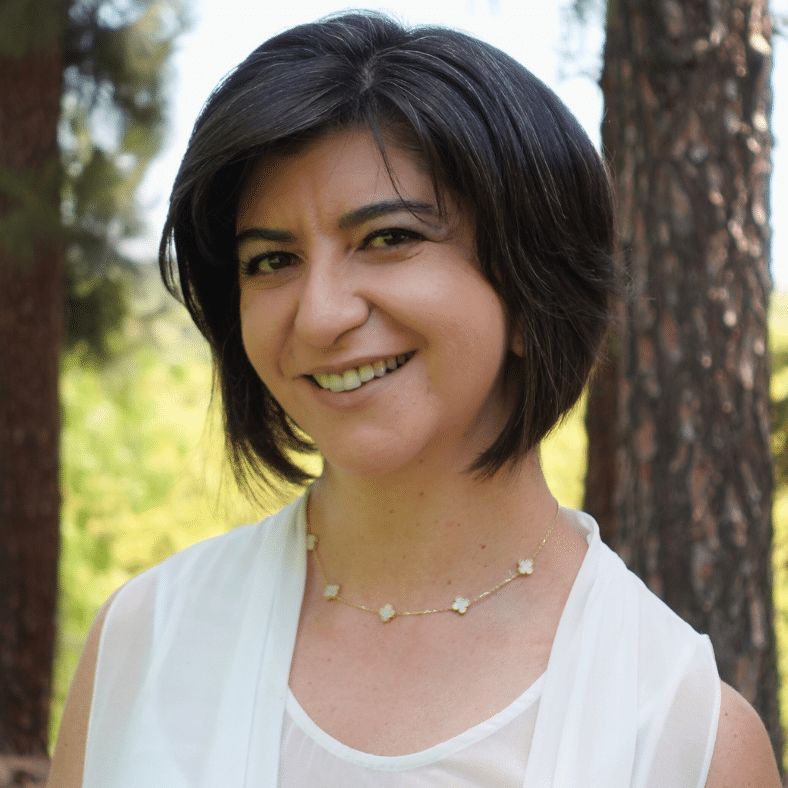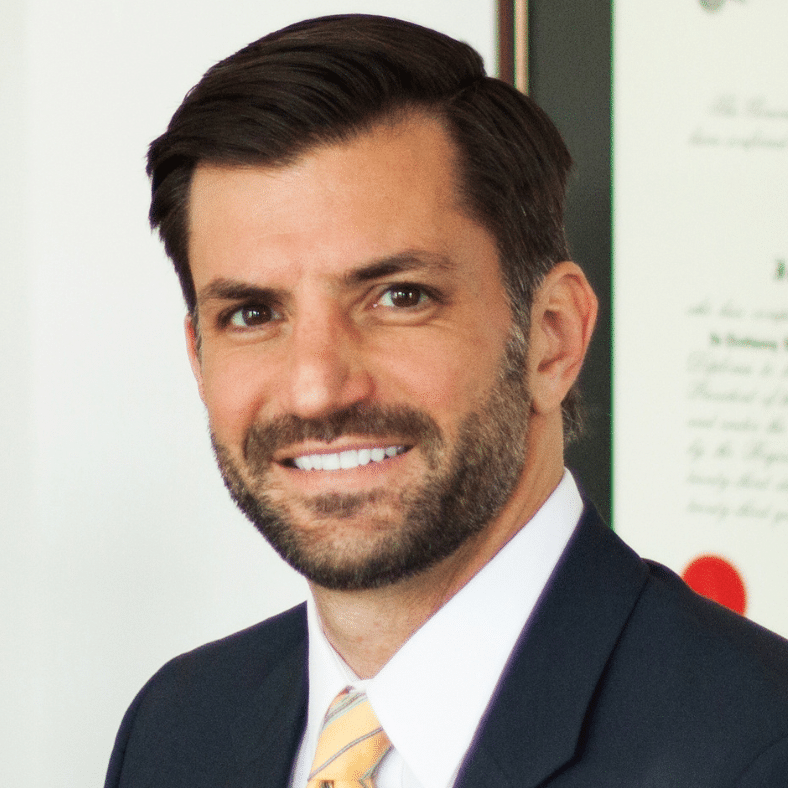Residential Treatment Centers for Bipolar Disorder in California
- Los Angeles Mental Health Treatment
- Mental Health Treatment in Los Angeles
- Bipolar Disorder Treatment in Los Angeles
At The Meadowglade, our residential treatment centers for bipolar disorder in California help individuals address and treat symptoms associated with bipolar disorder.
If you or a loved one are struggling, learn more about our Los Angeles mental health treatment programs by verifying your insurance or calling us at 888-862-1788.
Call Us Now
What is Bipolar Disorder?
Bipolar disorder is a complex mood disorder and mental disorder marked by extreme shifts in mood, energy, and activity levels. It can disrupt daily life, affecting relationships, job performance, and overall quality of life. At times, individuals may experience intense highs (mania) or debilitating lows (depression), which can make it challenging to maintain a sense of normalcy.
Recognizing and understanding bipolar disorder is the first step toward recovery, and at The Meadowglade, we specialize in comprehensive, evidence-based treatments that support sustainable mental health.
About 2.8% of US Adults Had Bipolar Disorder in the Past Year
According to the National Institute of Mental Health (NIMH), “An estimated 2.8% of U.S. adults had bipolar disorder in the past year.” Furthermore, about 4.4% of U.S. adults will experience bipolar disorder during their lifetime.
Bipolar Disorder Treatment Programs Near Los Angeles
At The Meadowglade, we offer the following levels of care during bipolar disorder treatment in Los Angeles:
Residential Treatment
Our California Residential Treatment program for bipolar disorder provides a structured, supportive environment where clients can focus exclusively on their recovery.
With access to 24/7 clinical care, clients benefit from tailored therapies and consistent guidance from our experienced team. This immersive approach allows individuals to work through the complexities of bipolar disorder in a peaceful and controlled setting, making significant strides toward stability.
Partial Hospitalization Program (PHP)
Our Partial Hospitalization Program is an ideal choice for those who require intensive support but are ready for more flexibility than residential care.
This program offers comprehensive day treatment, allowing clients to engage in structured therapy sessions and group work while having the option to return home or stay in partnered housing in the evenings. PHP combines the rigor of residential treatment with increased independence, helping clients transition smoothly to everyday life.
Intensive Outpatient Program (IOP)
The Intensive Outpatient Program (IOP) at The Meadowglade provides a balanced blend of therapy and autonomy.
Ideal for individuals who have progressed in their recovery, our IOP is a flexible treatment option that supports clients in managing bipolar disorder within the context of daily life. With sessions scheduled to accommodate personal and professional responsibilities, IOP empowers clients to maintain stability and independence while receiving essential therapeutic support.
Outpatient Treatment
Our Outpatient Treatment program is designed for those who have achieved a level of stability in their recovery but still seek regular therapeutic support.
This level of care provides clients with ongoing access to individual counseling, group therapy, and medication management while enabling them to fully participate in their personal and professional lives. Outpatient bipolar disorder treatment in Los Angles offers the necessary support to sustain progress and prevent relapse over the long term.
Types of Bipolar Disorder
The Diagnostic and Statistical Manual of Mental Disorders, Fifth Edition, Text Revision (DSM-5-TR), which serves as the standard classification system used by mental health professionals, recognizes four primary types of bipolar disorder. Understanding these distinctions is crucial for accurate diagnosis and effective treatment planning.
Bipolar I Disorder
Bipolar I Disorder is characterized by at least one manic episode that lasts at least seven days or is severe enough to require immediate hospitalization.
According to the DSM-5-TR, individuals with Bipolar I may also experience major depressive episodes, though these are not required for diagnosis. Manic episodes involve elevated, expansive, or irritable mood along with increased energy and activity levels. During these episodes, individuals may experience decreased need for sleep, grandiosity, racing thoughts, distractibility, increased goal-directed activity, and engagement in high-risk behaviors.
Bipolar II Disorder
Bipolar II Disorder is defined by a pattern of depressive episodes alternating with hypomanic episodes, but never a full manic episode. The DSM-5-TR distinguishes hypomania from mania by its shorter duration (at least four consecutive days) and less severe impact on functioning.
While hypomanic episodes involve similar symptoms to mania, elevated mood, increased energy, decreased need for sleep, and heightened creativity or productivity, they do not cause the marked impairment seen in full manic episodes. However, the depressive episodes in Bipolar II are often severe and can be more frequent and longer-lasting than those in Bipolar I, significantly impacting quality of life.
Cyclothymic Disorder (Cyclothymia)
Cyclothymic Disorder involves chronic, fluctuating mood disturbances that persist for at least two years in adults (one year in children and adolescents). While the mood swings are less severe than those in Bipolar I or II, they are persistent and can cause significant distress or impairment. Individuals with cyclothymia have not been without symptoms for more than two months at a time during the required duration period.
Other Specified and Unspecified Bipolar and Related Disorders
The DSM-5-TR also includes categories for bipolar presentations that don’t fully meet criteria for the other types but still cause clinically significant distress or impairment. Other Specified Bipolar and Related Disorder includes specific presentations such as short-duration hypomanic episodes with major depressive episodes, hypomanic episodes with insufficient symptoms, or short-duration cyclothymia.
Unspecified Bipolar and Related Disorder is used when symptoms don’t meet criteria for any specific bipolar disorder but the clinician chooses not to specify the reason, often in emergency settings or when there’s insufficient information for a more specific diagnosis.
Substance/Medication-Induced Bipolar and Related Disorder
This category, as defined in the DSM-5-TR, encompasses mood episodes that are a direct physiological consequence of intoxication, withdrawal, or medication effects. The mood disturbance must not be better explained by a non-substance-induced bipolar disorder and must cause clinically significant distress or impairment. This diagnosis requires careful evaluation to distinguish between substance-induced symptoms and an underlying bipolar condition that may be masked or triggered by substance use.
Bipolar and Related Disorder Due to Another Medical Condition
The DSM-5-TR recognizes that certain medical conditions can cause manic or hypomanic episodes. These may include neurological conditions, endocrine disorders, or other medical illnesses that directly impact brain function and mood regulation. Proper diagnosis requires establishing a clear physiological relationship between the medical condition and the mood symptoms through history, physical examination, or laboratory findings.
Signs and Symptoms of Bipolar Disorder
Bipolar disorder causes extreme mood swings, shifting between emotional highs (mania or hypomania) and lows (depression). These episodes vary in intensity and duration, affecting daily life, relationships, and work.
Manic Episode Symptoms
- Elevated mood – Extreme happiness or irritability
- Increased energy – Restlessness, racing thoughts.
- Decreased need for sleep – Functioning on little to no rest.
- Impulsivity – Reckless spending, risky behavior.
- Rapid speech – Talking fast, jumping between topics
- Grandiosity – Inflated self-confidence, unrealistic ideas.
- Psychotic symptoms (in severe cases) – Delusions, hallucinations.
Hypomanic Episode Symptoms
- Similar to mania but less severe
- Increased energy – Productivity boost, heightened creativity
- No major life disruption – Unlike full-blown mania
- Can escalate into mania or lead to depression.
Depressive Episode Symptoms
- Persistent sadness – Feeling empty, hopeless
- Loss of interest – No motivation for hobbies or work
- Fatigue – Low energy, sluggishness
- Sleep changes – Insomnia or excessive sleeping
- Appetite changes – Weight loss or gain
- Difficulty concentrating – Trouble making decisions
- Feelings of worthlessness – Excessive guilt, self-blame
- Suicidal thoughts – In severe cases.
Mood Patterns & Diagnosis
- Rapid cycling – Frequent mood shifts within a year
- Distinct episodes – Longer periods of mania or depression
- Diagnosis is key – Proper treatment includes medication, therapy, and lifestyle changes
Recognizing these symptoms early can help manage the condition and improve quality of life.
Recommended: Understanding Bipolar Disorder: Symptoms and Treatment
Causes of Bipolar Disorder
While the exact cause of bipolar disorder remains unknown, several factors may contribute to its development:
- Genetics: Bipolar disorder often runs in families, suggesting a genetic predisposition.
- Brain Structure and Functioning: Research has shown that there may be physical changes in the brain for individuals with bipolar disorder, which could affect mood regulation.
- Environmental Factors: Stressful life events, traumatic experiences, and substance abuse can also trigger the onset or exacerbation of bipolar symptoms.
Understanding the root causes of bipolar disorder can aid in developing a personalized treatment plan that addresses both the symptoms and contributing factors of the condition.
How Do I Know I Need Bipolar Disorder Treatment?
Recognizing when to seek bipolar disorder treatment in Los Angeles can be challenging, particularly because the condition often involves periods of high energy and productivity, which may feel positive in the moment.
However, if you or a loved one experiences any of the following, it might be time to consider professional help:
- Intense mood swings affecting daily life
- Periods of extreme highs or lows that disrupt routines, work, or relationships
- Difficulty managing impulsive behaviors during manic episodes
- Persistent feelings of hopelessness, lethargy, or lack of motivation during depressive episodes
- Uncontrolled thoughts of self-harm or risky behaviors
- Increased dependence on substances to cope with emotional highs and lows.
Treatment can provide you with the skills to navigate these experiences and establish a balanced, fulfilling life. At The Meadowglade, we emphasize compassionate, individualized care that aligns with each client’s unique challenges and goals.
As one of the premier bipolar treatment centers in Los Angeles, The Meadowglade offers a range of treatment options, each designed to meet clients where they are in their journey. Each of our levels of care was thoughtfully designed to offer the level of care necessary to support long-term recovery from bipolar disorder, with skilled professionals guiding each client’s journey.
Bipolar Disorder Treatments
Our bipolar treatment centers in California provide a wide array of therapeutic options, all designed to address the unique challenges of bipolar disorder:
Cognitive Behavioral Therapy (CBT)
Cognitive Behavioral Therapy (CBT) is a cornerstone treatment for bipolar disorder that focuses on identifying and changing negative thought patterns and behaviors that can trigger mood episodes.
Through CBT, clients learn to recognize early warning signs of mania or depression, develop healthy coping strategies, and challenge distorted thinking patterns. This evidence-based approach helps individuals gain greater control over their responses to triggers and build resilience against future mood episodes.
Dialectical Behavior Therapy (DBT)
Dialectical Behavioral Therapy (DBT) provides essential skills training that is particularly beneficial for individuals with bipolar disorder who experience intense emotions and interpersonal difficulties. This therapy focuses on four core modules: mindfulness, distress tolerance, emotion regulation, and interpersonal effectiveness. Through DBT, clients learn to navigate emotional intensity without engaging in harmful behaviors, develop healthier relationships, and build a stronger sense of self. The skills learned in DBT are invaluable for managing the emotional volatility that often accompanies bipolar disorder.
Education & Career Counseling
Bipolar disorder can significantly impact educational and professional goals, but with proper support, individuals can pursue meaningful careers and academic achievements. Our education and career counseling services help clients identify their strengths and interests while developing practical strategies for managing symptoms in work or school environments. We provide guidance on disclosure decisions, workplace accommodations, and building sustainable career paths that align with personal wellness goals.
EMDR Therapy
Eye Movement Desensitization and Reprocessing (EMDR) therapy is particularly valuable for individuals with bipolar disorder who have experienced trauma, which research shows can be a significant risk factor for mood episodes. EMDR helps process traumatic memories and reduces their emotional impact, potentially decreasing the likelihood of trauma-triggered mood episodes.
Equine Therapy
Our equine therapy program offers a unique opportunity for healing through interaction with horses in a structured therapeutic environment. Horses naturally respond to human emotions and energy, providing immediate, honest feedback that can help individuals with bipolar disorder develop greater emotional awareness and regulation skills. This experiential therapy promotes mindfulness, builds confidence, and offers a peaceful, grounding experience that can be particularly beneficial during mood stabilization
Family Therapy
Bipolar disorder affects not only the individual but their entire family system. Our family therapy services help educate loved ones about the condition, improve communication patterns, and develop supportive family dynamics that promote recovery.
Family members learn how to recognize warning signs, provide appropriate support without enabling, and maintain their own well-being while supporting their loved one. This collaborative approach strengthens relationships and creates a more supportive home environment that is essential for long-term stability.
Holistic Therapy
Our holistic therapy approaches recognize that healing involves the whole person. Our holistic therapies may include art therapy, music therapy, yoga, meditation, and other complementary practices that support overall wellness. Holistic therapies can help individuals discover new forms of self-expression, develop healthy coping mechanisms, and find meaning and purpose beyond their diagnosis.
Stress Reduction Therapy
Chronic stress is a major trigger for bipolar mood episodes, making stress management a critical component of treatment. Our stress reduction therapy incorporates various techniques including progressive muscle relaxation, mindfulness-based stress reduction, breathing exercises, and lifestyle modifications. Clients learn to identify their personal stress triggers and develop a toolkit of effective stress management strategies.
Psychiatry and Medication Management
Medication management is often an essential component of bipolar disorder treatment, and our psychiatric team provides expert medication evaluation and ongoing monitoring. Our psychiatrists work closely with clients to find the most effective medication regimen while minimizing side effects. We believe in collaborative medication management, ensuring clients understand their medications and are active participants in treatment decisions. Regular monitoring and adjustments help maintain mood stability while supporting overall treatment goals and quality of life.
More On Bipolar Disorder
- Is Bipolar Disorder Neurodivergent?
- What is The Difference Between Bipolar And Borderline Personality Disorder?
- Does Bipolar Disorder Get Worse With Age?
- How Does A Person With Bipolar Think?
- Understanding Bipolar Disorder: Symptoms & Treatment
- How Bipolar Disorder Affects Families
- Bipolar Disorder On The Screen
Get Help at Our Residential Treatment Centers for Bipolar Disorder in California
At The Meadowglade, we understand the courage it takes to seek help for bipolar disorder. Our compassionate, experienced team is here to guide you every step of the way, offering a supportive community and the highest quality of care.
If you or someone you love is struggling with bipolar disorder, we invite you to reach out and learn more about our bipolar disorder treatment centers in Los Angeles, California. Begin your journey to a balanced and fulfilling life today by contacting The Meadowglade.
Our Bipolar Specialists
At The Meadowglade, our team of compassionate and experienced mental health professionals is dedicated to providing comprehensive mental health treatment in Los Angeles. Our multidisciplinary team works collaboratively to offer personalized care tailored to each individual’s needs.

Narine Babikian, MHA

Joseph Gulino, MD

Yj Kim, MD
Mental Health Programs
Take A Free Self-Quiz

Yj Kim, MD
Psychiatrist

Haroon Burhanullah, MD
Psychiatrist

Narine Babikian, MHA
Executive Director







